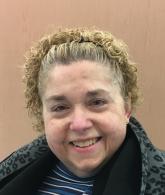The story of mental decline
When I was 21, I noticed our neighbor, Mrs. K* (*a pseudonym), laughed to cover up when she became lost in a conversation. From my vantage point, I could see her hands trembling slightly. But, they were under the table where others could not see them. Back then, I knew she had the beginning of a mental decline that was attributed back then to atherosclerosis (hardening of the arteries of the brain). I asked my mother to tell Mrs. K's daughter what I saw and suggest strongly that Mrs. K be evaluated by a physician. Even though I was saddened by what I saw, I found it amazing that Mrs. K had already adapted to the fact that her brain was failing.
Her daughter and the rest of the family were in denial even after a physician diagnosed probable atherosclerosis. Then, I wondered if I had done them any favor by telling them their mom was no longer behaving like she used to.
I recently read the New York Times article "Fraying at the Edges" about a woman dealing with the diagnosis of the beginning stages of Alzheimer's disease. I did not know if I could read the article, fearing it would be upsetting. Last year I could not force myself to watch the movie "Still Alice." My sister saw it and found the story and the ending frustrating.
I suppose each of us thinks we would know if we were losing it mentally. But, does each of us want to know that we have a definite diagnosis of Alzheimer's or other dementia? I know there are drugs now. I know they have been given to some nursing home residents for years.
I wonder what my grandmother experienced as she got older. She never said she was worried about her memory. When she was in her 70s, she lived around the corner from us for a year and she always seemed vital mentally. But she dealt with diabetes and the severe arthritis, which limited her mobility. Even so, I felt she gracefully moved into the role of being an older woman.
While reading the New York Times article I realized how much of that woman's life she lost over time to Alzheimer's. Yet, she still stayed much in life. She found working with a support group of other Alzheimer's patients a great comfort. She said Alzheimer's taught her to slow down and caused her to lose her internal clock. In that sense, she was forced to always live in the present.
The woman wanted to create a roadmap to help others navigate Alzheimer's. It certainly served as an enlightening primer of the inside of a very scary disease.

Kathleen Mears is a long-time blogger who has been a nursing home resident for 21 years. She is an incomplete quadriplegic and uses a power wheelchair to get around. Her computer is her “window on the world.” This blog shares her thoughts and view of life as a nursing home resident as well as ideas of how it might be improved in the future.
Related Articles
Topics: Alzheimer's/Dementia











